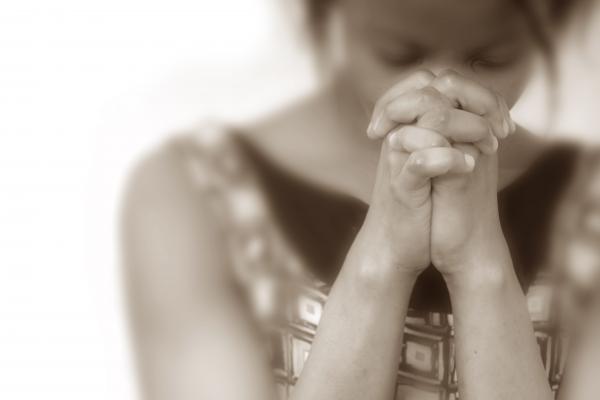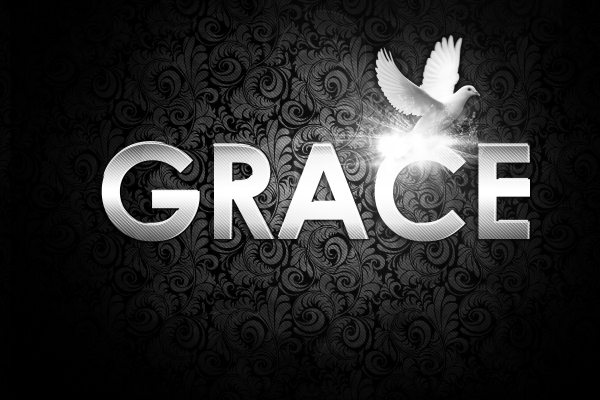It’s not every day that a coalition of legal minds is rooting for a violent inmate convicted of stabbing his girlfriend in the neck.
When Gregory Holt’s case arrives at the U.S. Supreme Court on Oct. 7, lawyers won’t be arguing about what landed him a life sentence in an Arkansas state prison, but rather what he wanted to do once he got there: grow a beard in observance of his Muslim religious beliefs.
The state of Arkansas says he can’t. Holt — a convert to Islam who now calls himself Abdul Maalik Muhammad — says he would keep his beard no longer than half an inch. But prison officials, backed by the state’s attorney general, argue that even such a short beard poses security risks.
“When it comes to making prison policies, the stakes are high; lives can be lost if the wrong decision is made,” according to the state’s legal brief, which describes Holt as a violent self-declared fundamentalist. “The ADC takes religious freedom seriously, but it takes seriously its paramount interests in safety and security, too.”
The St. Louis-based 8th U.S. Circuit Court of Appeals agreed with Ray Hobbs, the director of the Arkansas Department of Correction. But it’s hard to find too many others who think that the prison’s case for security trumps Holt’s right to exercise his religion.
Our shoulders touched slightly like links in a chain, kneeling around a small twin bed, our heads bowed, eyes closed: “ Our Father who art in heaven,” we mimicked, as mama kneeling at the foot of the bed, led us in prayer.
I was four, the second to the youngest child, and the other three were stair steps ahead of me. Hanging on to mama’s every word, we acted as though we didn’t take notice of the sorrow in her voice, the cries that lingered outside her bedroom door just hours ago.
Soon, she would lay in a Philadelphia hospital bed with stitches from the top of her chest down to her navel, and be told to kiss her five babies goodbye because my father had beaten her so badly that he burst both her lungs.
Decades later, I would sit across from her taking notes for Color Me Butterfly, as she told me the story:
I lay there listening to that doctor tell me that I wouldn’t make it through the night, she mused, her face drawn into the memory. I prayed, listened as God spoke to me, told me that I couldn’t let nary a soul touch me—not the doctor, the nurse, not even my own mother and chi’ren. He was gonna see to it that I walked out of that hospital, but I had to trust Him.
Now, as I think back on that day my mother stared into the abyss, as though she could still see the stitches that cinched her chest, I thank God that she was a praying woman.
As the Washington, D.C., premiere of Warner Bros.’ new movie, The Good Lie, came to a close, I could barely see the credits through my tears, but the noise of the crowd around me erupting into cheers and the standing ovation was impossible to miss. This film really touched me. I knew I had to write about it.
The Good Lie is the story of some of the "Lost Boys" of Sudan — orphans of war, who walked hundreds of miles fleeing violence, only to spend a decade in a refugee camp before finally being resettled in America. But the film is much more than that. It is a story about the power of faith and regular people who do incredible things because there is no one else who can. It is the story of immigrants — a funny and heartbreaking insight into what it is like to be a stranger in America. And it's a story and performance made all the more real because the Sudanese characters are played by actors who were child refugees and child soldiers themselves.
It stars Reese Witherspoon, whose character and role encapsulate so much of why this movie works. She's the headline draw for Warner Bros., but the movie is not about her. She helps the Lost Boys, but as is so often the case when we respond to God's call to care for our neighbor, they probably help her more. No one saves the day in this movie, but they all help save each other.
Public disagreements over whether the Roman Catholic Church can change its teachings on Communion for remarried Catholics are growing sharper on the eve of a major Vatican summit, with conservatives led by U.S. Cardinal Raymond Burke making another push against loosening the rules.
In a conference call with reporters on Sept. 30, Burke, who currently heads the Vatican’s high court, singled out the leading proponent of reforms, German Cardinal Walter Kasper, and his claims that critics of his proposals are really attacking Pope Francis.
Kasper has said that the pope supports his efforts to find ways to fully reintegrate divorced and remarried Catholics into church life. The proposals have become a prime focus of the upcoming Vatican meeting, called a synod, which will convene on Oct. 5 for two weeks to consider changes in family life in the modern world.
“I find it amazing that the cardinal claims to speak for the pope,” said Burke, the former archbishop of St. Louis, speaking from Rome. “The pope doesn’t have laryngitis. The pope is not mute. He can speak for himself. If this is what he wants, he will say so.”
On Oct. 3, when Israeli Jews sit down for their pre-Yom Kippur meal, prior to the Day of Atonement fast, many will be discussing where to buy their produce during this agricultural sabbatical year.
That’s because this Jewish New Year, 5775, is a sabbatical year, when, according to the Bible, the land of Israel is supposed to lie fallow. Called a “shmita” year in Hebrew, the sabbatical is intended to allow the poor to reap whatever may still be growing on the land “so that the poor of your people may eat,” Exodus 23:11.
The start of the sabbatical-year prohibitions, which include sowing, planting, pruning, reaping, harvesting and improving the land, coincided with the start of Rosh Hashanah, the Jewish New Year that began this year on Sept. 24. Produce planted before the shmita can be harvested this year.
But people have to eat, so a century ago rabbis found a way to bypass the law so no one goes hungry.
It’s interesting how the word “grace” gets used a lot, even by those who don’t necessarily consider themselves religious. It’s a favorite name for a character that represents someone who is a gift to us — I’m thinking about Bruce’s girlfriend Grace in Bruce Almighty, or Eli’s reassuring encounter with a woman named Grace in the second season of the TV series Eli Stone.
You can probably cite many more examples of characters named Grace in different movies, television shows, and books.
We like to put flesh-and-blood on the notion that we are recipients of some great gift that arrives unexpectedly and is given freely. Someone or something that comes into our life and significantly changes it for the better in some ways.
But what is grace? Who is grace to us?
Dare to go there with me, if you will. What if we imagine God’s vineyard as described in Matthew 21 to be this beautiful world we inhabit? What will happen if we reject it—if we continue to treat it with disrespect, fail to listen to its natural woes, dismiss the warning signs it gives us? What if God is keeping score? Oh. Dear. Might I remind us all, that if we do not tend to this earth, we are only inevitably hurting ourselves and the lives of future generations?
This is why, like never before, over one thousand groups and individuals, including various faith groups, businesses, peace activists, social justice groups, schools, and environmentalists from all over the country united for the largest climate march in history on Sunday, September 21, gaining international attention. The People’s Climate March, held in New York City, was the perfect moment to take a stand, create a buzz, and create the much-needed public influence and pressure as NYC prepared to welcome decision-makers from across the globe to discuss this very topic.
For one year, my wife and I are living 2,700 miles apart.
She lives in a one-bedroom apartment here, south of San Francisco. Each weekday she walks two blocks to the home of our middle son and his wife, where she cares for their 9-month-old son.
“Granny nanny” is what they call this phenomenon. Once maternity and paternity leaves expire, grandparents across the country are moving close to their adult children, maybe into their homes, to provide child care so both parents can pursue their careers.
A six-hour plane ride away, I am back in our Manhattan apartment, where our youngest son, age 23, is living at home until he lands a job in the worst job-finding environment since the Great Depression.
Our oldest son, meanwhile, is adapting his country house to become a multigenerational household next year, when my wife returns east. I have already had a taste of caring for their 8-month-old daughter, and it is wonderful.
It seems we have joined a growing trend toward sharing living space: three generations (grandparents, parents and children) or two generations (parents and adult children).
I absolutely love to read, and anyone who is familiar with Oscar Wilde I’m sure recognizes the quote I have chosen for my title; “To define is to limit.” From the moment I read this in The Picture of Dorian Gray, I thought to myself: this is me; this is how I see the world. Now I know people argue with this quote because a definition is a precise statement of what a word means. But just think of “define” as “label.” When you put a label on someone, you classify and constrict them, which limits them from breaking out their true potential.
For example, when we are constantly talked about as illegal aliens, we are given the image of harsh criminals. This image affects our self esteem and our confidence. Some, like Aly Wane, start to believe that there is something evil inside of them. It also limits us from reaching out to the American people and proving to them that we are not here to cause any harm. We only want the opportunity of seeking a brighter future. We are not criminals. We have done what we had to do, what any human would do, to seek a violence-free life, to keep our families together, or, like me, to pursue an education. I am one of 11 million, and each one of us has a different story to tell.
Several faculty members at the Episcopal Church’s oldest seminary are battling with the school’s leadership, although neither side agrees whether they quit, were fired or staged a walkout.
General Theological Seminary in Manhattan is the only seminary overseen by the national church. Last week, eight faculty decided to stop teaching classes, attending official seminary meetings or attending chapel services until they could sit down with the Board of Trustees.
The dean and president, Kurt Dunkle, wrote a letter to students saying the Board of Trustees’ accepted the eight faculty members’ resignations. But faculty member Andrew Irving wrote to students saying the professors never suggested they would resign.
“We wish to underline that we have not resigned,” Irving wrote, suggesting the group sought legal counsel. “Our letters did not say that we would resign. We requested meetings with the Board.”
The Rev. Ellen Tillotson, an Episcopal priest in Connecticut and a GTS board member, wrote that it has become clear that the eight faculty have been planning a walkout.









